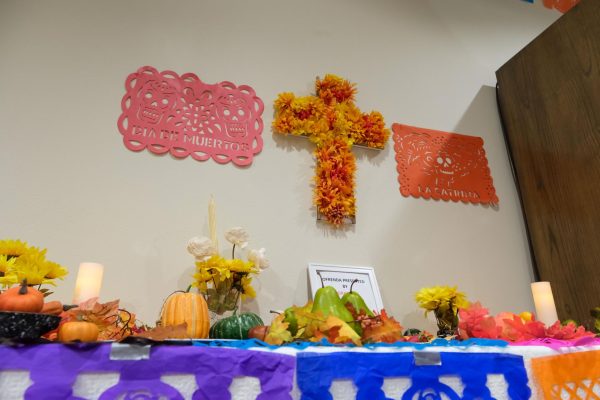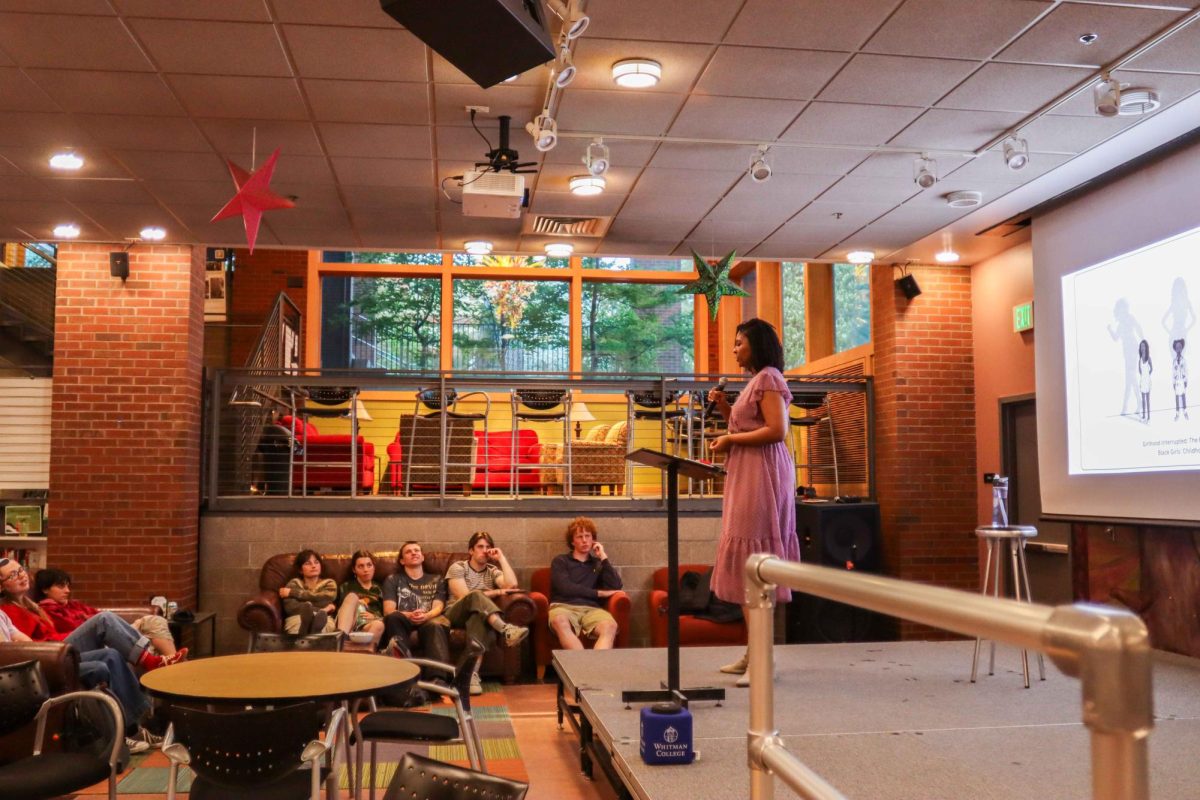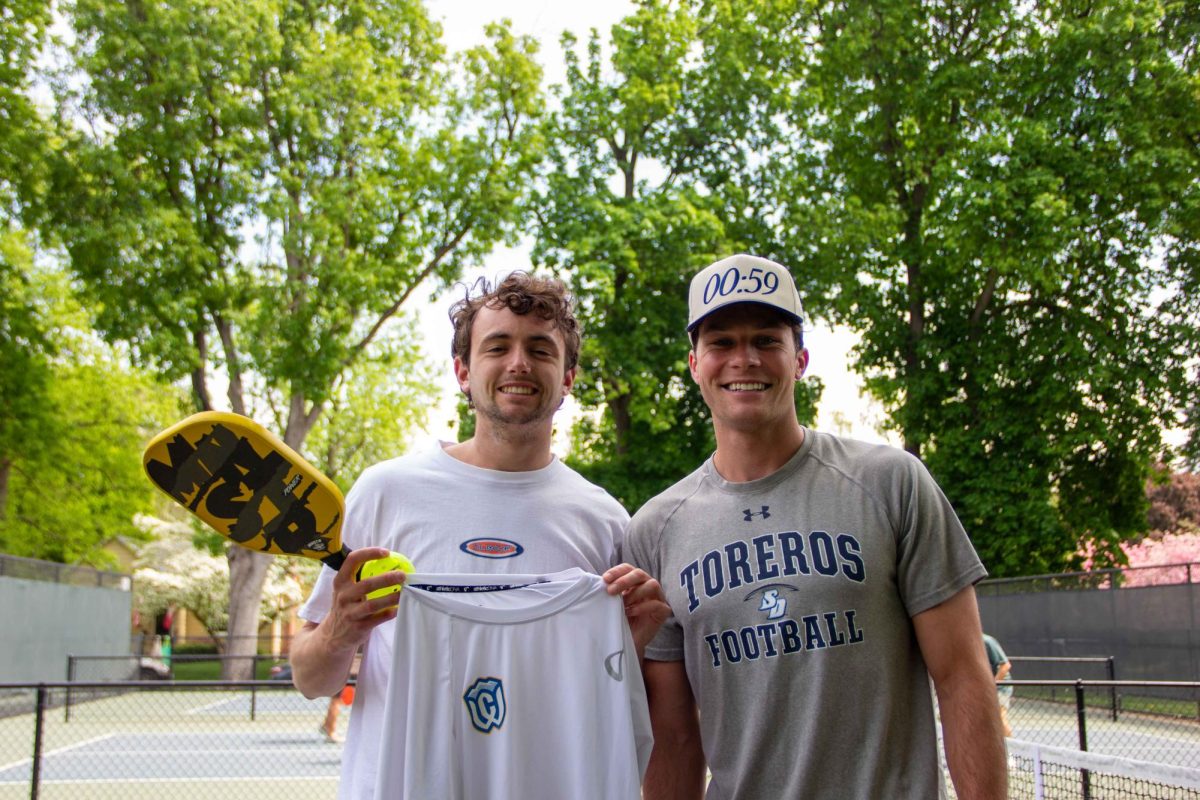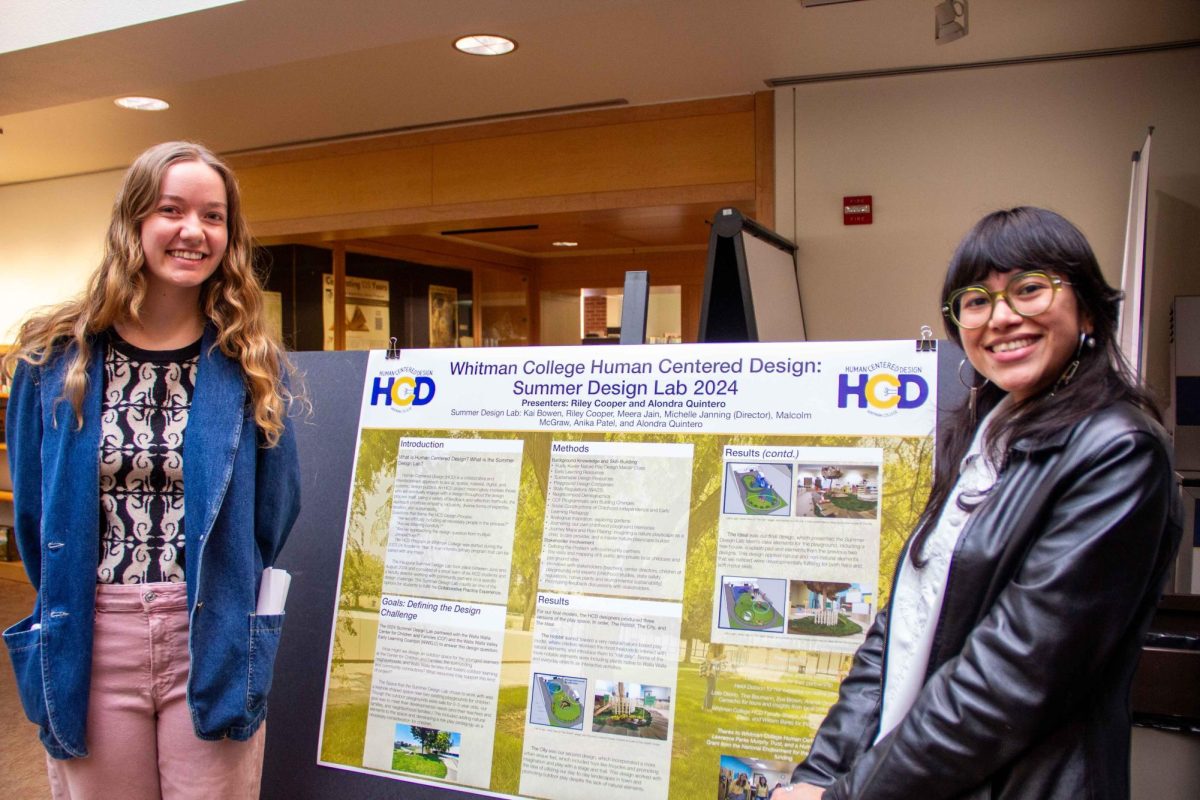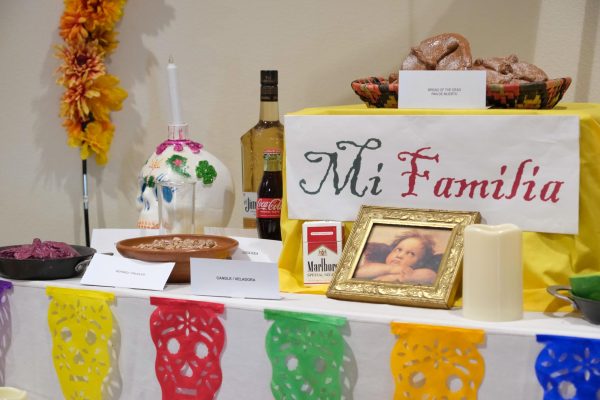
Love does not end after someone has died. It is this sentiment that fills the hearts of people who celebrate Día de los Muertos and Día de los Difuntos, also known as the Day of the Dead and Day of the Deceased, as they honor the memory of loved ones who have died.
On Friday Nov. 1, O’Donnell Visiting Educators Margarita Fuerza and Segundo Moreta led a workshop about Día de los Difuntos with the help of the Center for Global Studies. The workshop, coordinated by Whitman alumnus Anna Taft, class of 2002, focused on the personal and cultural significance of Día de los Difuntos while celebrating tradition.
Día de los Difuntos is influenced by the indigenous Kichwa belief that death is not the end of being and instead marks another form of life. Sharing food and drink with the deceased is a way to honor their memory and to help them in their new life.
Fuerza guided the group through the baking of guaguas de pan, or bread babies. The bread babies represent the deceased and eating the bread is a way of remembering them.
Taft, the Founding Director of the Tandana Foundation, a non-profit focused on intercultural relationships in Ecuador and Mali, wanted to bring a different perspective on Day of the Dead to Whitman and honor the cultural heritage of the holiday. She did this by inviting Fuerza and Moreta to guide students through traditional practices and speak on their own experience with the holiday.
“I really enjoyed bringing together people from different backgrounds in a way that everyone felt honored by,” Taft said.
Nicole Simek, Director of the Center for Global Studies, as well as a Cushing Eells Professor of Philosophy and Literature, Professor of Indigeneity, Race and Ethnicity Studies and Gender Studies, helped to organize the event. She spoke on the importance of workshops like this at Whitman.
“It helps put us in touch with different cultures and cultural practices and different forms of expertise. Learning to talk the language of the different types of expertise, opening ourselves up to translation and other cosmologies and world views that get expressed through language and through cultural practices,” Simek said.
The workshop is not the only event providing opportunities for remembrance across the community. One way many celebrate is by setting up an ofrenda, or offering. Many public ofrendas can be seen in Walla Walla during the Day of the Dead celebrations. One such ofrenda was set up in Reid Campus Center by the Hispanic Studies Department and Unidos, the Latinx affinity group on campus.
Ofrendas can also be found at Fort Walla Walla Museum, with a full-fledged ofrenda exhibit to celebrate Día de los Muertos. The exhibit contains several ofrendas made by community members, including ones made by Dora’s Deli, Grandma’s Kitchen, Green Park Elementary and Walla Walla High School Club Latino.
On every ofrenda there is a piece of paper with the words “no me olvides” written on it. This translates to “don’t forget me” and is a reminder of the importance of remembering those who have died.
Manuel Perez, the owner of Grandma’s Kitchen, and Katy Sassara, the executive assistant at Fort Walla Walla Museum, were the main organizers of the ofrenda exhibit. Skylar Porter, a Store Associate at Fort Walla Walla Museum, spoke on the work contributors put into the exhibit behind the scenes.
“They really spearheaded getting [the exhibit] out there and getting it to fruition,” Porter said. “It started off as a tiny idea and it really blossomed into what we have now.”
Alongside his contributions to the museum exhibit, Perez spearheaded Grandma’s Kitchen’s organization of a Día de los Muertos Parade on Nov. 3, with a party being held afterward in Heritage Park.
No matter how a person celebrates Day of the Dead, there are many enriching opportunities in the Whitman and Walla Walla communities to honor the memory of those who have died and to help them in the next life.
